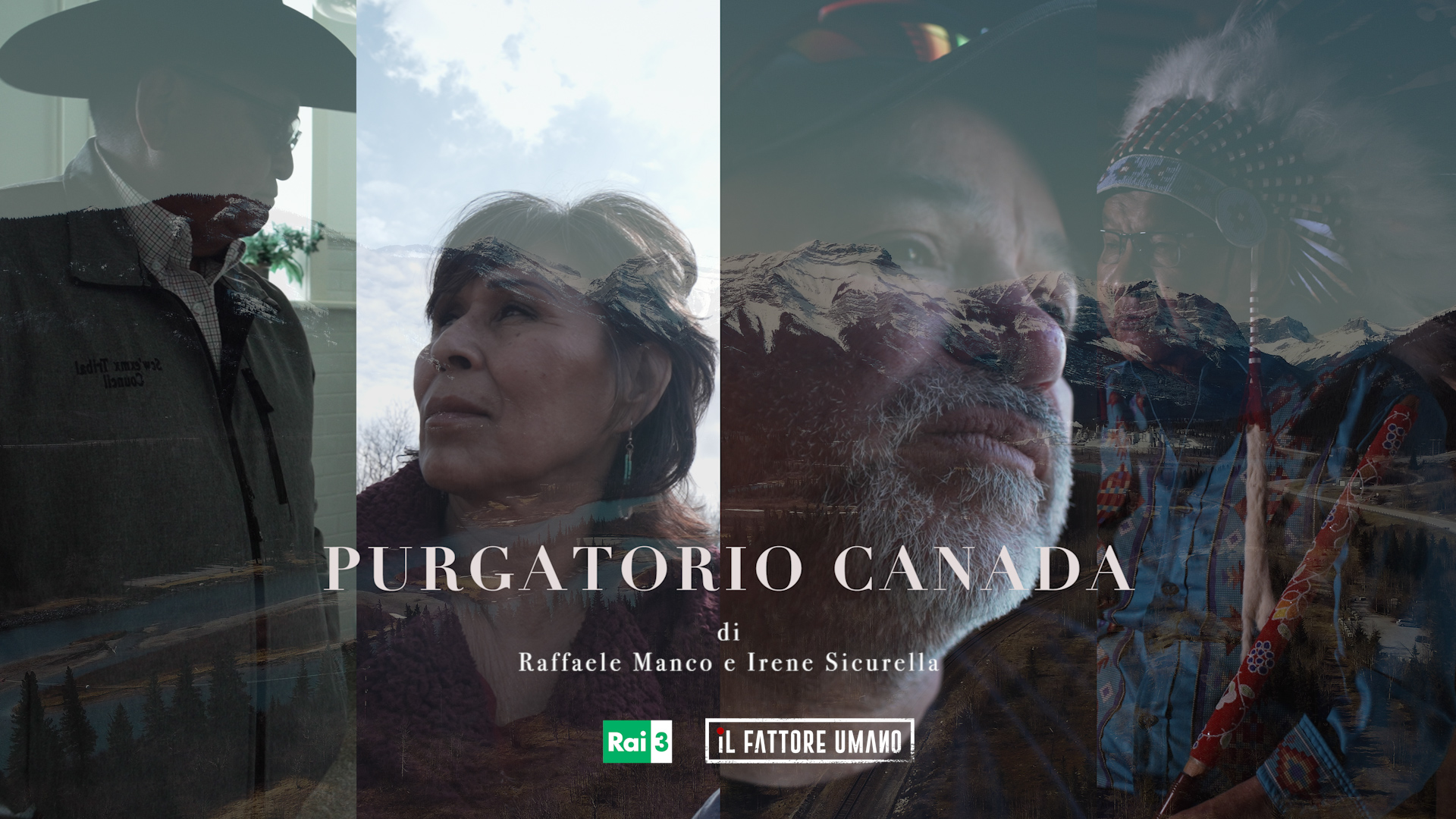data sheet
Documentary by Raffaele Manco e Irene Sicurella
Direction Cinematography Editing Raffaele Manco
Researches Irene Sicurella
Year of production 2022
Running time 69 minutes
Abducted from their families, raped, murdered. Thousands of native children faced this fate in Residential Schools managed by the Catholic Church in Canada. A journey through Manitoba, Alberta and British Columbia together with the survivors, walking alongside the spaces where the very real horrors took place, a journey through pain processing called “decolonisation”. The stories of genocide still taking place for a people with unspeakable past and uncertain future.
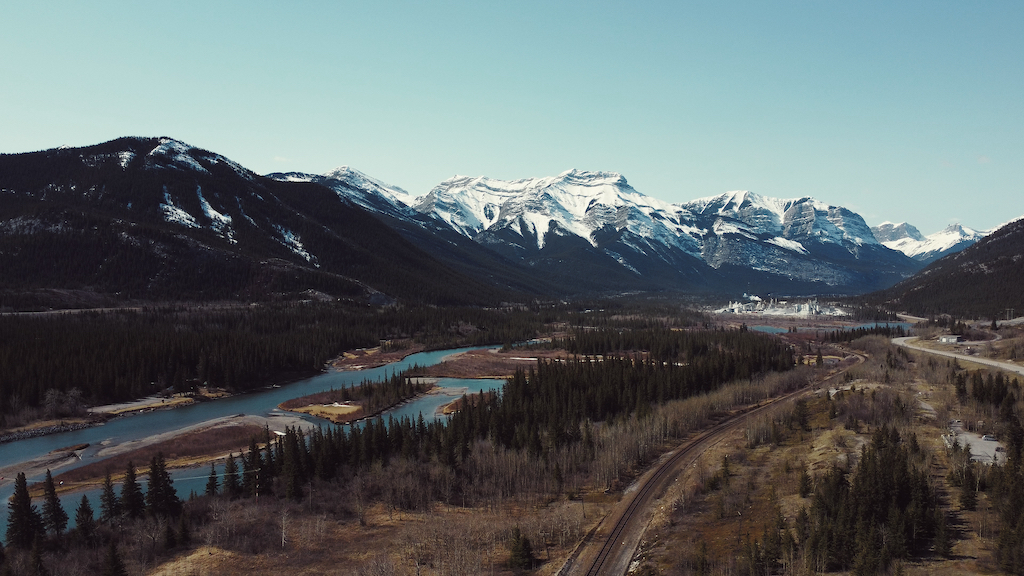
Rocky Mountains stand out on a blue sky. An ice wall slowly becoming waterfall remembers us the past winter, as the creek free from the snow. The sunlight filtering through the trees in the forest, soft as a fawn step that, suddenly, stares at the camera. As frightened children would. Grand Chief “Bear who gently walks” aka Fred Kelly, grand elder of Anishinaabe community, member of the Assembly of the First Nations whispers, summoning the ghosts of the deportation “They brought us in the Indian Reservation, a different name for prisoners’ camp where you couldn’t escape without the Government permission”. Fred was five years old when they locked him up in a catholic residential school, his braid cut, his traditional dress thrown away. And he was raped. Kill the Native inside the child: the perfect solution to eliminate Natives for the Indian Affair Department. Residential Schools were a governmental act.
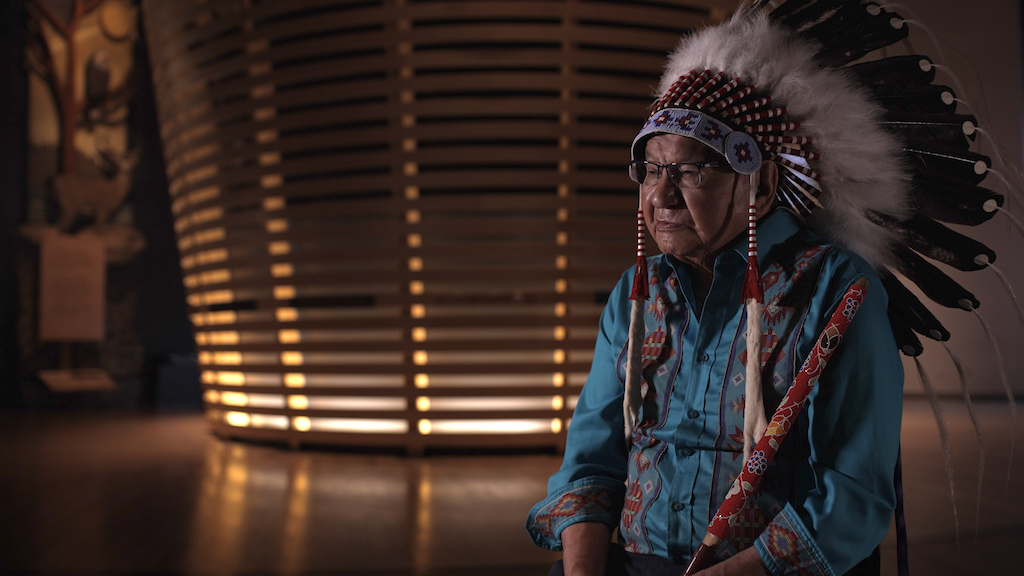
Like so, in democratic Canada, in Summer 2021 thousands of bodies were found, the forgotten remains of disappeared native children through the years. 215 little bodies buried in Kamloops and another 751 in Saskatchewan. Both groups on Catholic Church’s soil, managing Residential Schools on behalf of the government from 1890 till 1998. Almost a hundred years of native children (Amerindians, Mètis and Inuit) deported from their families to be “re-educated” following the dominant culture and the catholic standards. Forced not to speak their language. Abused, raped, killed. The Canadian Holocaust.
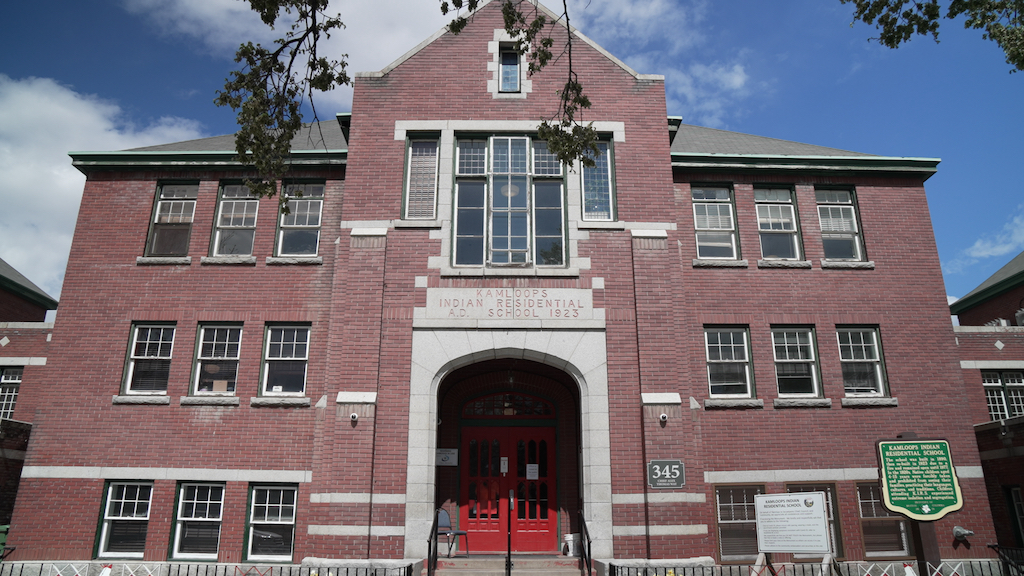
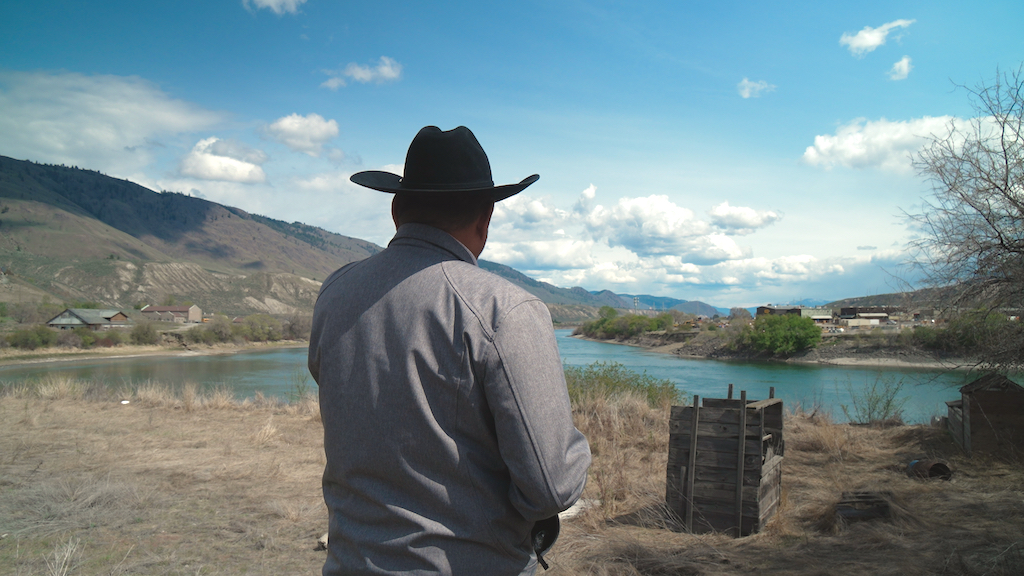
150 thousand children stolen. Between 4 thousand and 6 thousand children who have never returned home. Like those buried along the banks of the river flowing alongside the Kamloops Indian Residential School. Harvey McLeod went to that school. He is a tall, strong man, wears a high- crowned, wide-brimmed hat and sunglasses. He finds the strength to return to the building where he was raped multiple times by the teachers. He shows the bathrooms where he used to take refuge and clean up from the violence. The backyard brickwall where he just wanted to die. The camera follows him in the corridors, out in the courtyard, alternating with archive images shot in the 1960s, in the same Kamloops school.
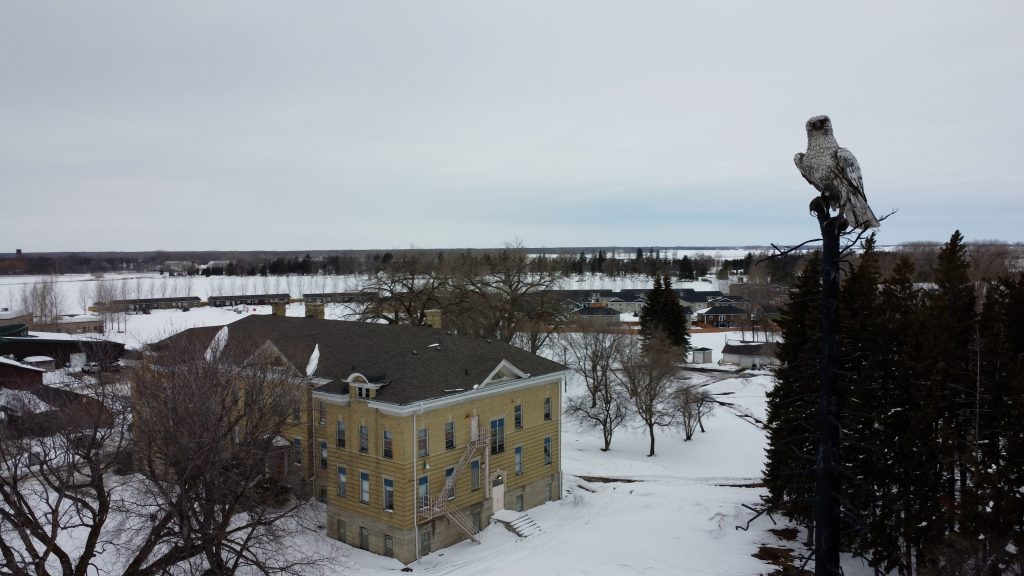
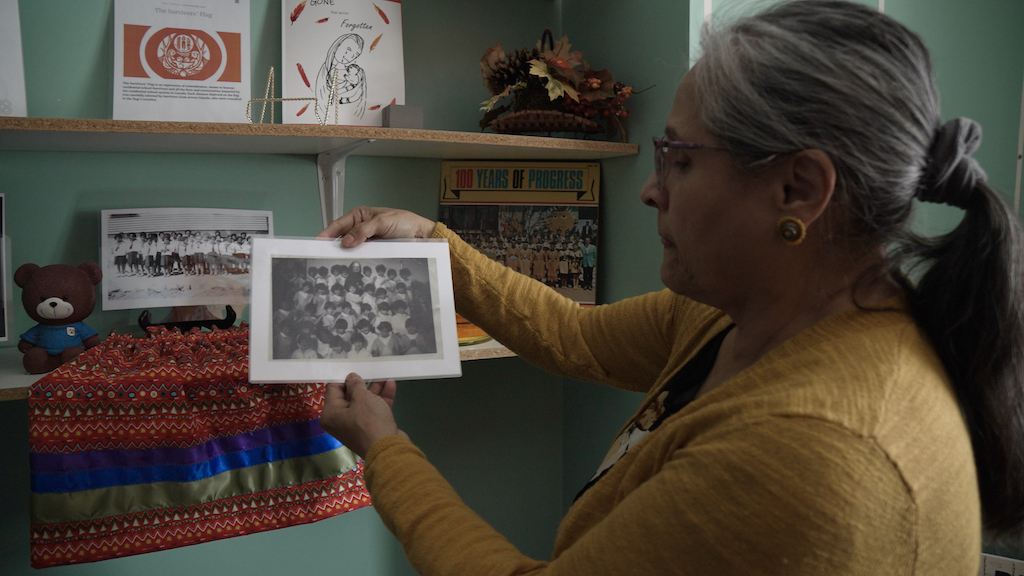
“They forced us to eat our vomit. If we threw it up, they forced us to eat it again”. It’s just one of the chilling anecdotes told by cousins Linda and Lorraine Daniels, violently beaten by Sister Teresa, becoming black and blue from the bruises. Linda’s tears and the terror she felt when her community chose her to go to Rome to meet the Holy Father Pope Francis, was like reopening a wound. She’s the one who looked Pope Francis in the eye and told “feel our pain” on April 2022 in Vatican City.
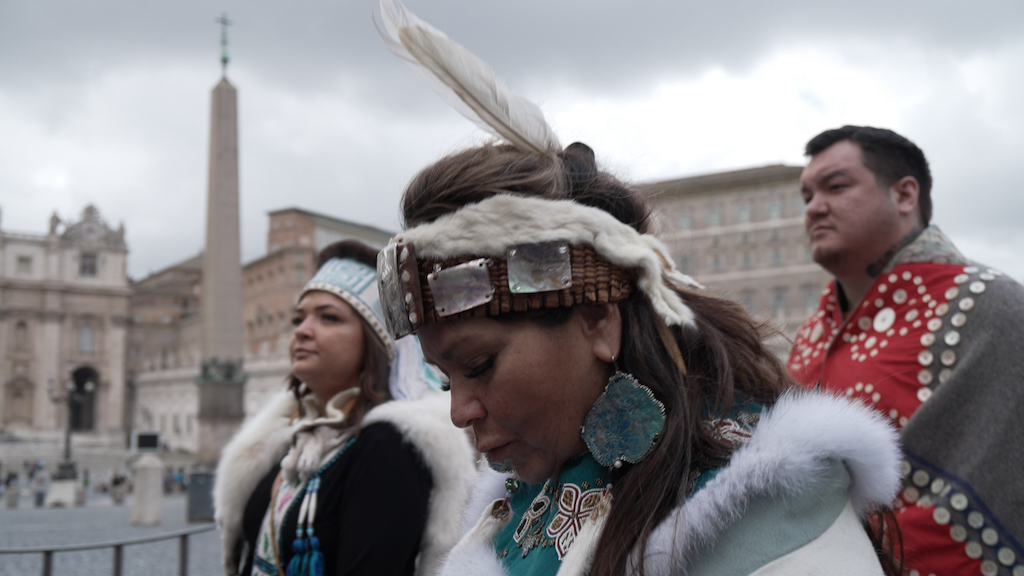
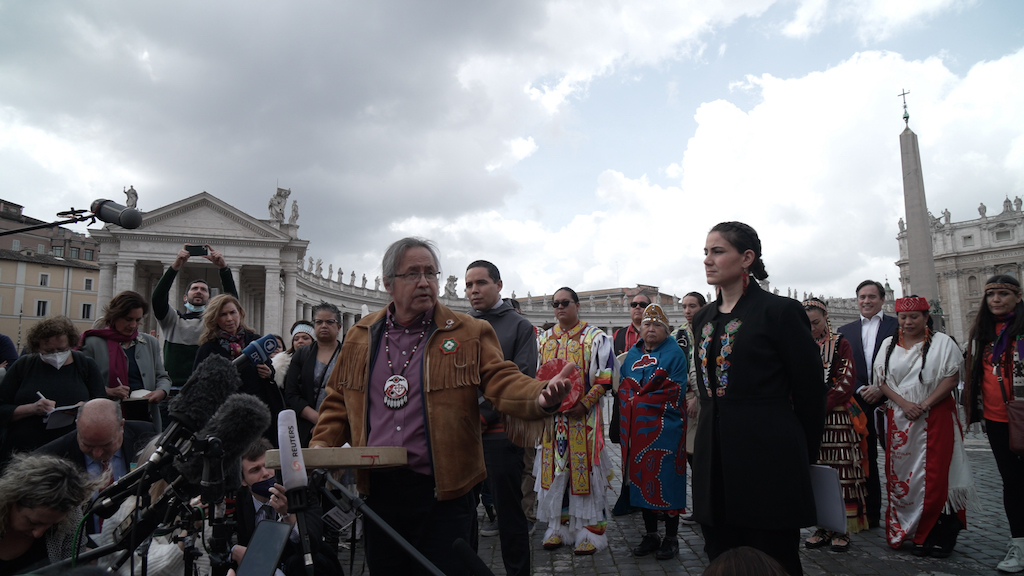
The room filled with feathers and colored clothes, the many faces bearing truth and pain, a monumental silence broken by those three words, uttered by the Pontiff: “I beg your pardon”. After a hundred years and a long week of meetings and ceremonies, the three delegations of First Nations, Metis and Inuit received an apology for the horrendous crimes suffered at the hands of the Catholic Church. Apologies that will never heal the wounds of little Harvey, Linda and Lorraine and of many forever ruined generations.
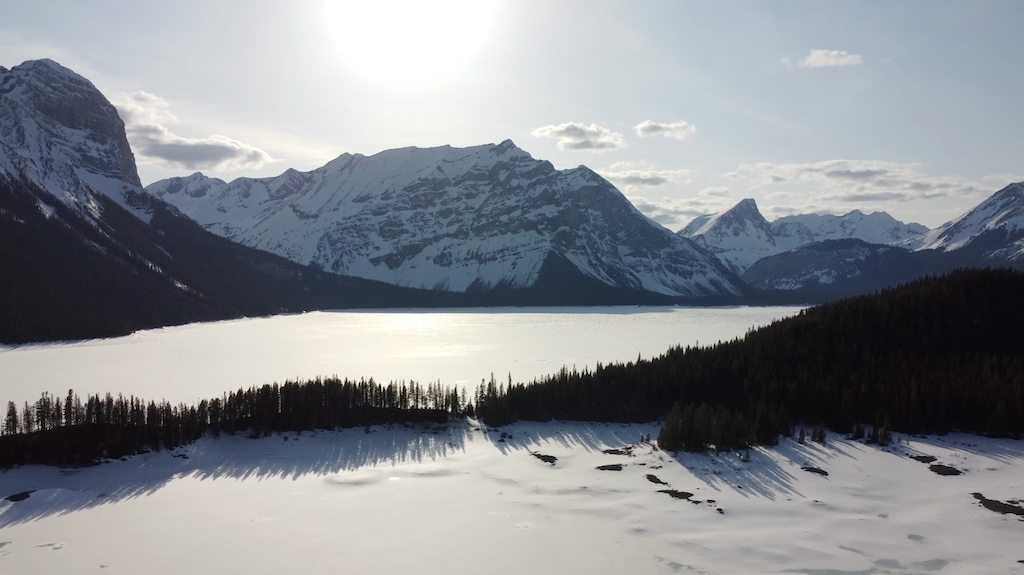
Unable to establish interpersonal relationships, to be good parents, psychosis, unemployment, addictions, depression. Suicide rate among the highest in North America. Life in reservations is tough and with any growth prospect.
Everything is in the hands of the government. Beautiful lands, rich in natural and economical resources for the greedy and exclusive use of the white man.
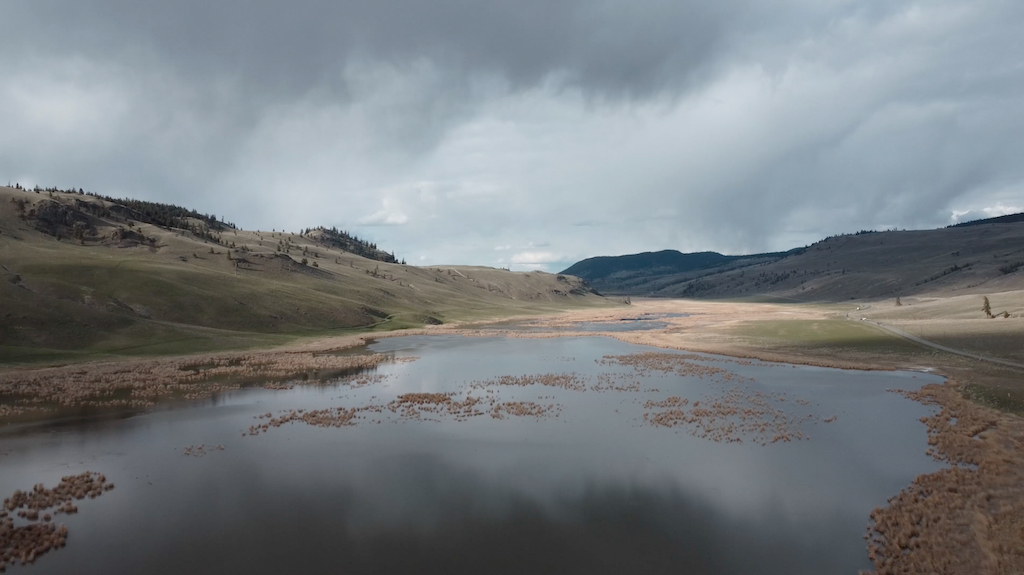
Across thousands of kilometers, among bears coming out of the woods, horses galloping through the hills, charging bisons, the documentary shows the surrounding nature in all its moving beauty. The beauty betraying the sad and resigned reality of a people from which everything has been taken away, and which still lives on the margins of society. A purgatory, a suspended punishment, where the new generations have to deal with an unspeakable past and an unpredictable future.
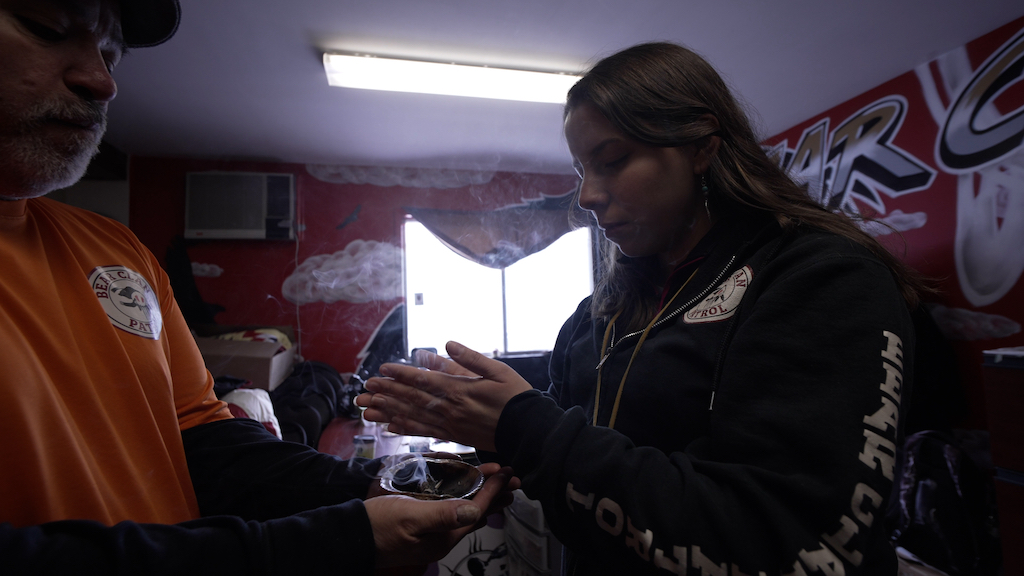
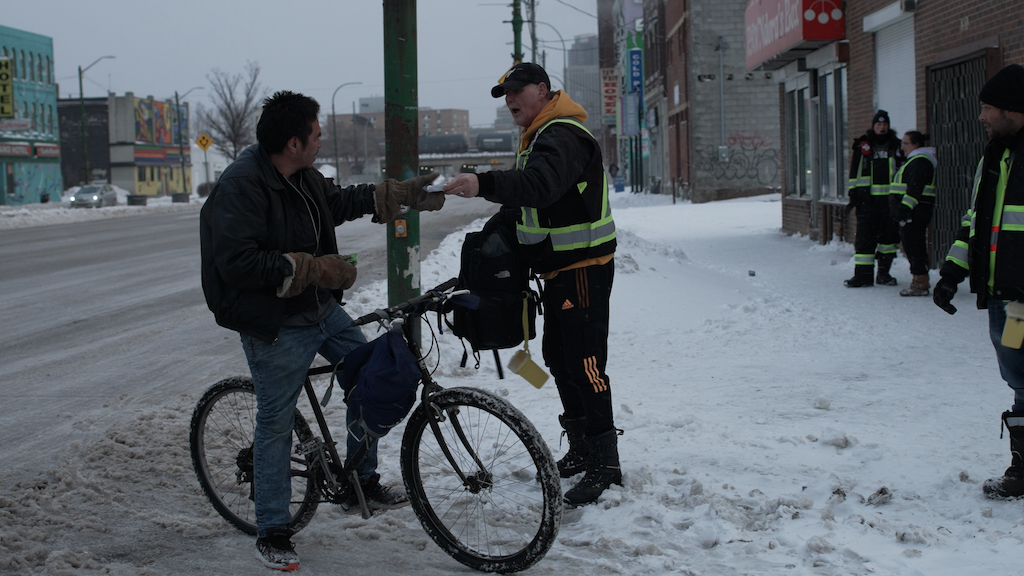
Big cities don’t offer opportunities either. In Winnipeg the temperatures go down to -40 degrees, the indigenous people who represent about 60-80% of the community “do not have the most basic resources, from water to food or homes”. Kevin Walker, of the Bear Clan Patrol, a group of volunteers who helps the poor and the marginalised trying to recover drug addicts, tells it. Kevin is of Metis origin and knows a prompt intervention can save lives. In the freezing cold of Winnipeg it’s a matter of life or death. The hundreds of indigenous girls who lose their lives every year are well aware of this. They disappear into thin air, swallowed by the icy waters of the Red River after being brutally raped and killed. Crimes that most of the time go unpunished. Not only by the hand of lone wolves, but also by an atrocious practice such as forced sterilization.
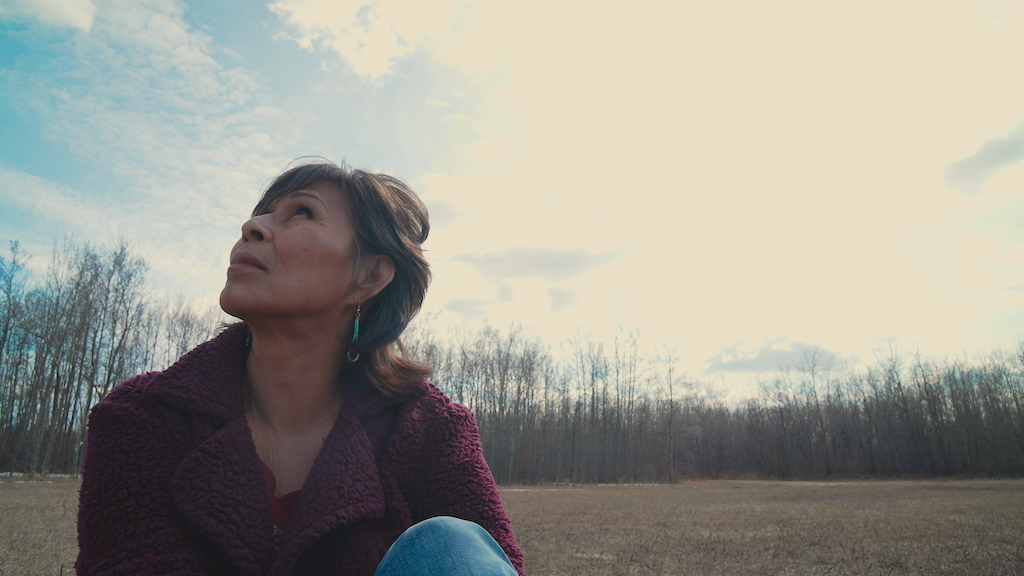
“I was born inside this story. In this systemic racism, in these various degrees and forms of genocide. I had no choice”. These are the words, broken by emotion, of activist and writer Morningstar Mercredi. She was the unaware victim of sterilization at the age of 14. Many women in Canada have had, and still have, the same fate. Just for being native. Indian. They have been definitively deprived of the possibility of being a mother, having their fallopian tubes clamped. The last officially documented sterilization is from 2018. Induced fear to avoid complaints. One of the many horrible ways to decimate the indigenous population. Over and over.
The effect of a permanent racism and colonialism that has kept eugenics health programs running or years: experiments on men, women and children in exclusively indigenous hospitals. Like the Nazis with the Jews in 1940s Germany. But was in the 70s, in Canada.
And as Morningstar looks at the abandoned Edmonton hospital where her grandmother lost 9 of her 12 children, tears of anger fall from her eyes, and tears of pride for being alive. “They tried, but they couldn’t. We’re still here”.
Purgatorio Canada is a documentary film by Raffaele Manco and Irene Sicurella for Rai3 as part of “Il Fattore Umano” first aired on July 25, 2022 and then followed by reruns and streaming. You can see it in its original full version here.

